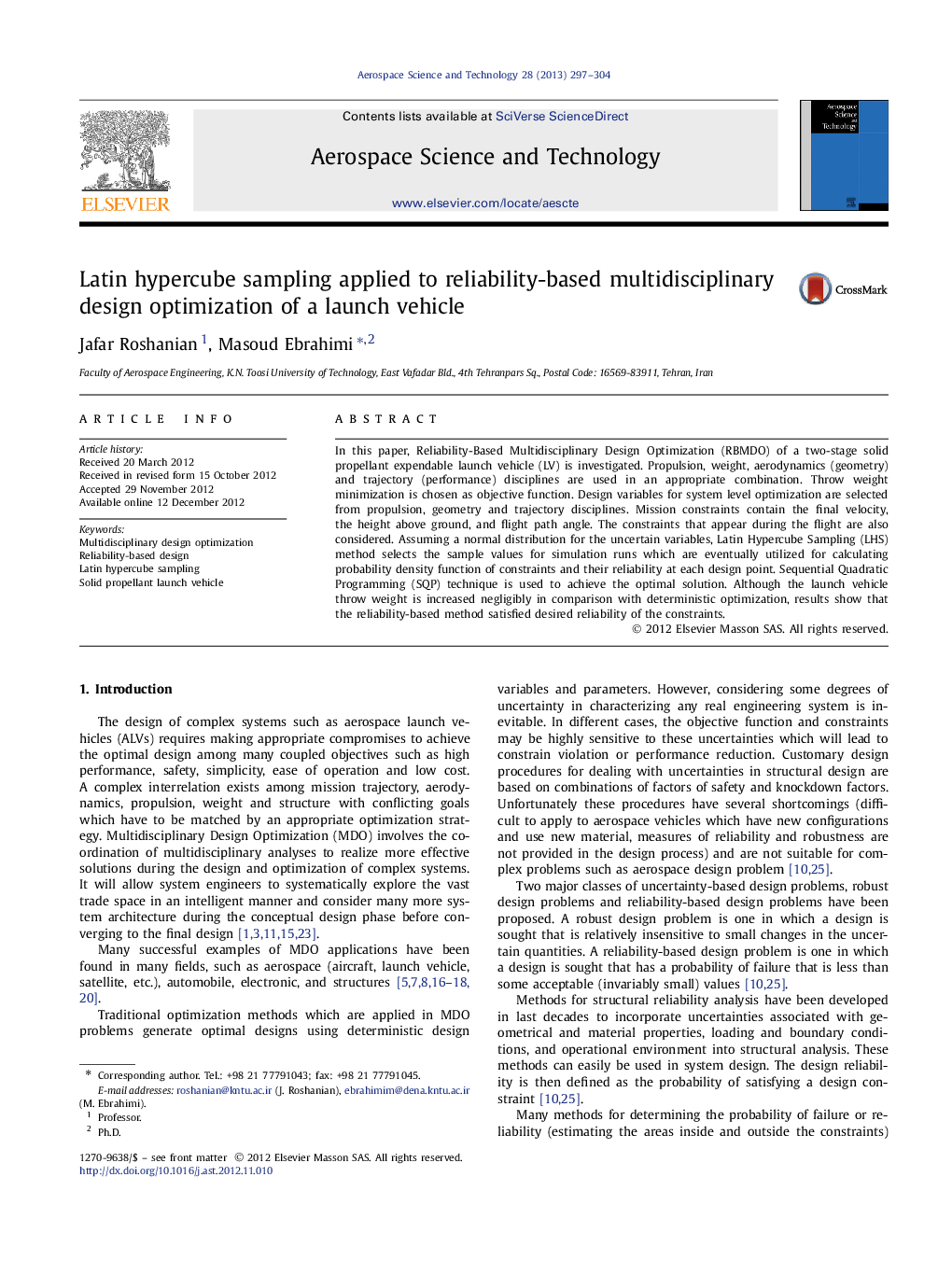| Article ID | Journal | Published Year | Pages | File Type |
|---|---|---|---|---|
| 1718283 | Aerospace Science and Technology | 2013 | 8 Pages |
In this paper, Reliability-Based Multidisciplinary Design Optimization (RBMDO) of a two-stage solid propellant expendable launch vehicle (LV) is investigated. Propulsion, weight, aerodynamics (geometry) and trajectory (performance) disciplines are used in an appropriate combination. Throw weight minimization is chosen as objective function. Design variables for system level optimization are selected from propulsion, geometry and trajectory disciplines. Mission constraints contain the final velocity, the height above ground, and flight path angle. The constraints that appear during the flight are also considered. Assuming a normal distribution for the uncertain variables, Latin Hypercube Sampling (LHS) method selects the sample values for simulation runs which are eventually utilized for calculating probability density function of constraints and their reliability at each design point. Sequential Quadratic Programming (SQP) technique is used to achieve the optimal solution. Although the launch vehicle throw weight is increased negligibly in comparison with deterministic optimization, results show that the reliability-based method satisfied desired reliability of the constraints.
